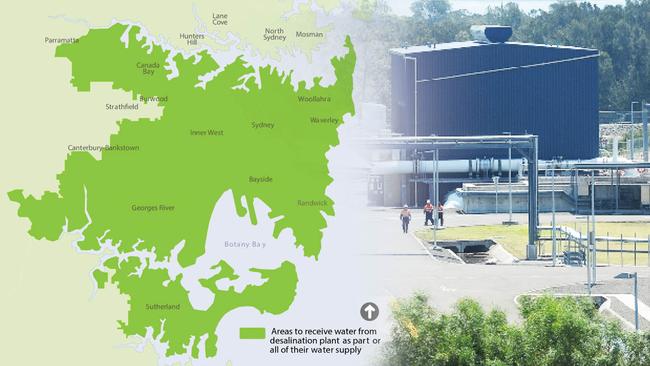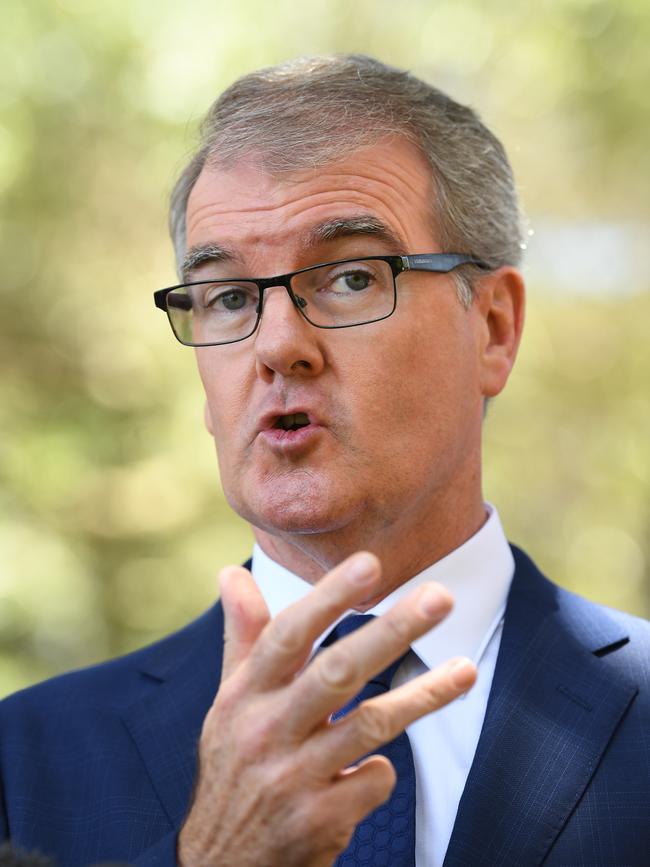Desalination plant switched on as water levels fall below 60 per cent
Water authorities have flicked the switch on Sydney’s controversial desalination plant, returning it to operation for the first time in seven years. But it will take up to four months before drinking water enters the network. SEE THE SUBURBS WHO’LL RECEIVE THE WATER.
NSW
Don't miss out on the headlines from NSW. Followed categories will be added to My News.
Water authorities have flicked the switch on Sydney’s controversial desalination plant, returning it to operation for the first time in seven years.
Sydney Water this morning confirmed total storage levels in Greater Sydney had reached 59.9 per cent — the $2.3 billion Kurnell plant enters start-up mode when levels fall below 60 per cent.
The desalinator, which was last used in 2012, will supply up to 15 per cent of the city’s water.
But it will take up to four months before drinking water enters the Sydney Water network and eight months before it is “fully operational”.
It will also cause household water bills to rise by about $35.

MORE NEWS
Hay delivered to drought-stricken farmers
Group of men rescued, one missing at Bents Basin
Teen with 579 caps among 10 dealer arrests at festivals
Sydney Desalination Plant chief executive officer Keith Davies said it was estimated drinkable water would be delivered to Sydney’s drinking water supply “within the next three to four months”.
“In line with our operating licence, we expect it will take up to eight months from restart for the plant to reach its maximum capacity of producing 250 million litres per day of water — or about 15 per cent of Sydney’s drinking water requirements,” Mr Davies said.
“The Sydney Desalination Plant plays an important part in assisting the NSW Government in implementing its wider measures aimed at alleviating the metropolitan impacts of the current drought.”
In a statement on its website, Sydney Water said: “Desalinated water will help meet customer demands as the drought intensifies.
“Sydney’s water supply is otherwise entirely dependent on rainfall.”
Opposition Leader Michael Daley said it was “unfair” families would have to pay more in bills.


“It’s not fair — it’s another example of the Liberal Party business model in action, that’s why we’re ruling privatisation out,” he said.
“If I’m the Premier in March, there will be no more privatisations because under privatisation, it’s the ordinary citizen that just gets ripped off and this is another pearler of an example.”
The O’Farrell Government signed a $2.3 billion deal with a private Canadium consortium in 2012 for a 50-year lease of the plant.
Premier Gladys Berejiklian said the government had planned for facility to be restarted “some months ago”.
“The desal plant was built there some years ago where it’s never been used for a purpose,” she said.
“Of course we say to everybody please be sensible in how you use the water but we have done the right thing in making sure it’s ready to be used.”
The desalinator, built in response to the “millennium drought”, last supplied water to the Sydney basin between 2010-2012.


